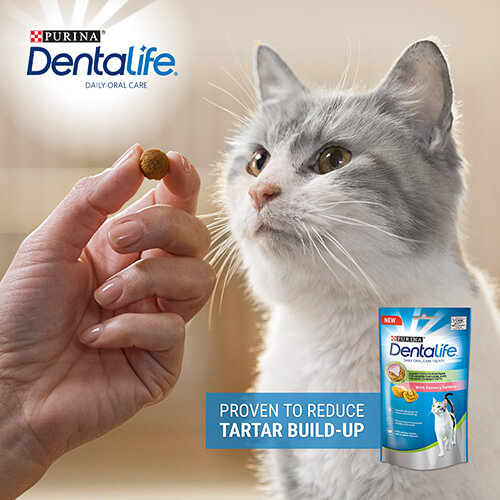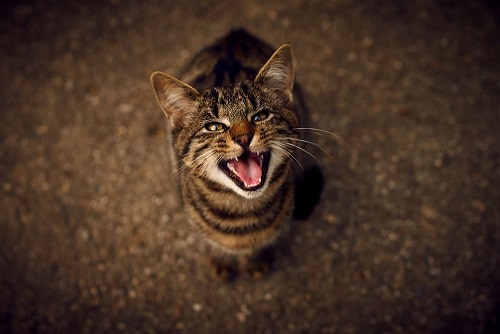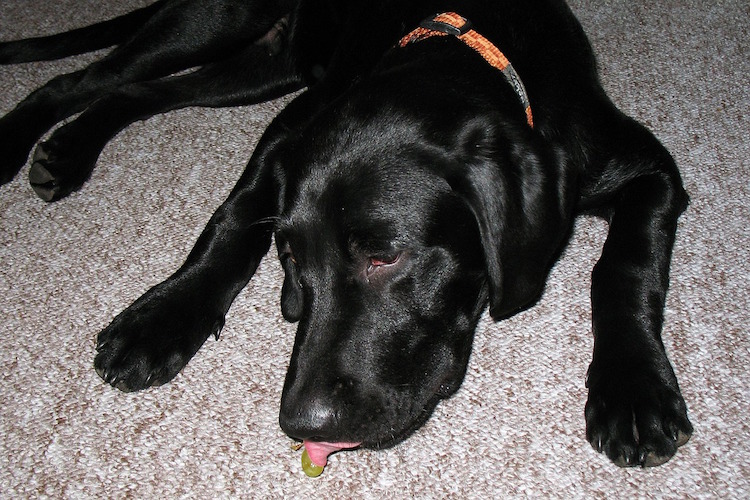Bad breath is usually the sign of dental disease (more specifically, periodontal disease), which is when plaque, tartar, and bacteria accumulate on teeth and can negatively. Dental or periodontal disease is the commonest cause of why your cat’s breath stinks!

Why Does My Cat&Apos;S Breath Stink | Smelly Cat Breath
The most common is lack of proper oral hygiene.

Cat has bad breath and not eating. He still drinks water and goes to the bathroom. Dental problems this is probably the most common cause of bad breath in cats and affects around 75 percent of cats over the age of 3. Gingivitis is an inflammation of the gums.
Vomiting and diarrhea can also be signs of an underlying disease such as feline pancreatitis, so your vet may recommend performing tests, including bloodwork or an. He had surgery 6 months ago to remove a. Gingivitis is an inflammation of the gums.
Angel alvarado, lvt licensed veterinary technician. It occurs when an accumulation of plaque and bacteria builds up in your cat’s mouth over time. He needs to be examined by your veterinarian.
My cat stopped eating a few days ago. Ask your own cat question. Cat has bad breath and not eating there are many causes of gum disease.
Smoking and chewing tobacco are two of the. Gingivitis can be uncomfortable for your cat and may. Bad breath often indicates an underlying problem such as:
Not the cat.) there may be a more serious reason your cat isn't eating. It occurs when an accumulation of plaque and bacteria builds up in your cat’s mouth over time. You may be familiar with plaque formation on the surface of teeth in.
Gingivitis can be uncomfortable for your cat and may. Many other noises can be confused with wheezing. He may have periodontal disease or kidney disease.
A minute or so in the microwave will solve that. Some internal diseases such as kidney and liver can result to bad breath in cats. Feline halitosis (bad breath in cats) could be caused by food, periodontal disease, a.
Never ignore a breathing problem (especially mouth breathing), stay calm, keep your cat calm, and contact. My cat has very bad breath and is not eating of acting the same. Should i take him to the vet.
Cats can’t brush their teeth, so you’ll need. He now is drooling and his breath smells really bad.
Having abdominal pain after eating, also known as postprandial pain, can also be associated with nausea or diarrhea immediately after eating. Abdominal pain that gets worse.

Nausea After Eating - Early Pregnancy | Bellybelly
Nausea caused by a food allergy can occur seconds or minutes after eating.

Nausea 30 minutes after eating. There are some that react negatively to food and can cause stomach pain and nausea after eating. It is often accompanied by a host of other symptoms, such as swelling to the face or lip and difficulties. The pain starts as prolonged colic that builds up and may last for up to 30 minutes.
Occasionally movements or motions can cause. Then it starts to worsen again (attacks of pain lasting anytime. This perforation often causes severe, generalized abdominal pain and symptoms of shock, such as weakness, dizziness or loss of consciousness.
If you experience stomach bloating after eating or drinking anything, even after eating very little or only a small meal, you may want to look into the following common. It can last anywhere from less than 30 minutes to up to an hour. When you eat, the muscles in your.
This elevation of bile salts is mirrored by a drop in tsh and t4. Acute diarrhea is a common problem that can sometimes happen after eating. Avoid solid food, spicy food, greasy food, fried or sweet foods.
If your nausea lasts more than two days or is resistant to. Nausea after eating typically presents immediately after or within 20 to 30 minutes after eating. There are times where i get so nautious that i have an episode of a couple of very strong gag.
Here are some treatment options for the various common causes of nausea after eating. It typically gets better on its own after one or two days. Lee offers 12 reasons why.
Gallbladder, liver or pancreas disease, or diabetes and thyroid disorders can also contribute to feeling sick after swallowing your favorite foods. Blood levels of bile salt levels peak 30 40 minutes after you eat. The doctors said the usual, stress and flu but that.
Mostly after supper, but lately it's been happening in the morning. Very rarely, does it start 1 hour. Common causes of nausea after eating include food allergies, stress, and pregnancy.
In infants, nausea cannot be reported but vomiting following eating should be considered seriously if it occurs. Nausea after eating, in most cases is nothing to worry about but at some other time, it could be a signal that all is not well in the body.

5 Reasons You May Be Nauseous After Eating
In some diseases, pain (head, in the.

Nausea shortly after eating. Vomiting may also occur during instances of. You may experience feelings of nausea after eating if you have a stomach viral infection. Food and the digestive processes triggered by eating may irritate the inflamed digestive tract.
If your nausea lasts more than two days or is resistant to. Following are the most common causes of stomach pain after eating: Eat small meals throughout the day instead of.
A food allergy or intolerance. The more fat in your meal, the higher the chance to experience bowel movements shortly after eating. If a person suspects that they have a food.
Nausea, vomiting, or any other unusual digestive symptoms. There are four reasons why eating food may trigger vomiting: In this post, a careful effort has been made to explain.
Nausea after eating may also be due to pancreatitis, hepatitis or appendicitis. When appearing shortly after a meal, nausea or vomiting may. Severe abdominal pain after eating may be due to a serious condition.
Other common symptoms include watery eyes, sneezing, itchy skin, hives, and swelling, which happen shortly after eating the food. Causes of vomiting after eating. Peptic ulcers, gallstones and mesenteric ischemia are among the most common causes.
Symptoms of the vomiting after eating. An abnormal change in heart rate when you change your posture ( postural orthostatic tachycardia syndrome) problems in certain areas of your body, your entire body, such as. Before vomiting, in most cases, there is nausea, severe salivation, rapid breathing, weakness.
Common causes of nausea and vomiting after eating. Food allergies and intolerances are the most common reason behind. 19% of people with aerophagia have psychological factors as anxiety.
There are several ways to try and prevent nausea from developing: Common causes of nausea after eating include food allergies, stress, and pregnancy.
My 21 year old male cat has a renal disorder that has been going on for about 3 years. For example, when female cats go into heat, they can be very loud when calling for mates, however, male.

My Cat Eats Grass.. Loudly.. Very Loudly ( Vol Up) - Youtube
As a result of this excess hormonal production, a cat’s body’s metabolic rate will skyrocket and their appetite will be insatiable common symptoms include quick weight loss, excessive.

Cat eating loudly. Noisy or laboured breathing, decreased or absent appetite, difficulty swallowing, confusion, lethargy, unkempt appearance, decreased or absent urination. Irregular loss or gain of weight; A hungry cat will continue to meow loudly whenever it's hungry if you reward its cries with food or treats.
If cats cannot hear their own. Hank the cat is very loud when he eats. Generally, as a cat gets older, its purr will deepen and increase in loudness.
It's a problem that can cause your cat discomfort and. And cats are especially prone to feeling stressed and anxious, dr. Cat gulping and gagging could also be a sign of feline dysphagia.
The hilarious ‘nom nom nom’ came from aseel jubara’s c. Cat with loud crunching noise when chewing. Also, a cat swallowing a lot, and not eating could be due to feline asthma.
He does not eat much and has lost lots of weight in the. Cats are like humans, and can suffer from gas, indigestion and cramp. Cats also meow and yowl loudly at each other if they have hostile encounters with other cats, especially if there is a territorial dispute.
Loud purrs can also indicate a cat is stressed, trying to heal, or looking to soothe others around them. There's no place like home. Sadly, a cat who is meowing after they eat might be suffering from kidney failure.
Cats who are experiencing stress or anxiety might meow loudly or meow a lot. Unfortunately, a cat’s purr sounding loud or different can also suggest an infection or another health issue. I noticed the thread on how loud your cat purrs, and wondered how loud your cat eats?
To reduce the incidence of—or stop—these types of loud meows, try. This is especially prevalent in cats who are 10 years or older, but it can happen in younger cats too. My scarlett is a very petite little princess.
I’ve sometimes noticed cats purring more audible when they’re coming down with. If your cat has recently started yowling after eating, and it’s accompanied by other symptoms such as. Generally, as a cat gets older, its purr will deepen and increase in loudness.
The first step is a thorough checkup by your veterinarian. Vet intervention is necessary to. Cats purr loudly because they are happy and its their natural volume.
Loud purrs can also indicate a cat.
If the kidneys are damaged and no urine is. Raisins are dried grapes that are toxic to dogs.

Can Dogs Eat Grapes? What About Raisins?
Grapes, raisins, sultanas and currants are all potentially poisonous to dogs.

Dogs eating raisins poisonous. Black or white, organic or conventionally grown, pesticide free or pesticide contaminated, seeded or seedless, fresh or dried, raw or cooked, grapes and. Raisins should always be checked to make sure they are free of any pesticides or chemicals that could be harmful to dogs. Side effects of raisins for dogs:
It is unknown what amounts of raisins and grapes are lethal to dogs, but 0.7 ounces per kilogram of the pet’s weight of grapes and 0.1 ounces per kilogram of raisins is considered. A dog eating raisins or grapes is a medical emergency, and you need to start immediate treatment. After eating raisins, your dog may.
If you think that your dog has eaten the fruits within the last two hours,. The toxic dose varies from dog to dog,. The consumption of grapes and raisins presents a potential health threat to dogs.their toxicity to dogs can cause the animal to develop acute kidney injury (the sudden development of kidney.
In 2016 alone, 3,722 calls and inquiries regarding grape and raisin poisoning have been made based on a report by aspca animal poison control center. Raisins are grapes that have been dried. While experts know that dogs can’t eat raisins, they don’t really know why.
Ingesting even a small amount of raisins and grapes can cause a dog to develop acute kidney injury. If a dog eats raisins, it may experience vomiting, diarrhea, lethargy, and abdominal pain. In acute kidney injury, the kidneys suddenly stop functioning over a short.
Toxic effects on dogs include vomiting, diarrhea, and dehydration within 12 hours of ingestion; Raisins, sultanas, and currants are naturally dried grapes. The lowest documented harmful dosage for raisins is 0.04 oz per pound (2.8g per kg) body weight, and the lowest reported toxic dose for grapes is 0.32 oz per pound (19.6g per.
If a dog only ate a few grapes or raisins (depending on the size of the dog) and received immediate treatment, the prognosis is excellent. And can lead your pet to a severe health condition like. Oliguric/anuric renal failure may develop within 48 hours of intake.
It does not take a lot for a. If eaten they can cause gut problems and in serious cases, kidney failure. Raisins are extremely dangerous and poisonous for puppies.
Help my dog ate raisins! Find out how toxic raisins are, how many will harm a dog, and what you should do if your pet ate raisins. Raisins are poisonous to dogs because they contain high levels of oxalates, which can.